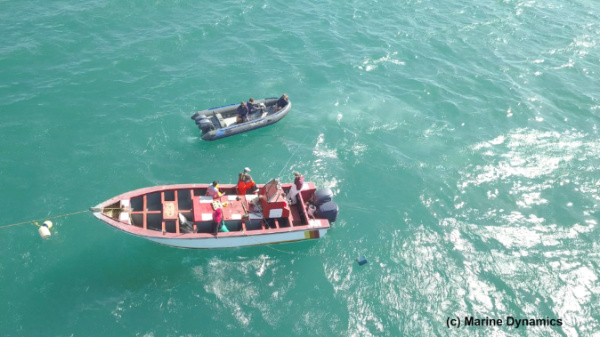Shark Conflict in Gansbaai - Sign the Petition

On Wednesday 19th February, shark cage diving tourists in Gansbaai (Western Cape) were horrified when a fishing boat started catching bronze whaler sharks in full view of where they were busy observing the sharks. The small population of bronze whaler sharks, also known as copper sharks has provided great viewing opportunities for tourists. The presence of the “Bronzies” has ensured the viability of the shark cage diving industry during a time when great white shark sightings are more infrequent due to a variety of reasons.

Because Bronze Whalers are not a protected species the Great White Shark Protection Foundation (GWSPF), a collective group of tourist operators, conservationists and shark scientists in Kleinbaai realised that the potential conflict between the non-consumptive tourism industry and the commercial and recreational shark fisheries could mean the death knell for their industry.
In a pro-active effort to avoid conflict, the GWSPF approached the then ministry of Agriculture, Forestry & Fisheries, to propose a small exclusion zone for the fishing of bronze whaler sharks. In a letter dated August 2019 Minister Barbara Creecy, the minister of the newly combined Department of the Environment, Forestry and Fisheries indicated that she has instructed her department to commence with a multi-stakeholder meeting to discuss the proposal from GWSPF. Operators were hopeful that a compromise solution would be found but this never happened.
In October 2018, the shark watch enthusiasts were very upset when a fisherman caught and killed a 100kg Copper shark next to where they were diving. It was one of four “Bronzies” killed that morning. Because, despite numerous pleas, no action has been forthcoming from the DEFF and in an effort to prevent the complete implosion of the shark cage diving industry in Gansbaai, operators resorted to paying fisherman to stay away from the cage diving area. Operators have paid out close to R900 000 over the last three years. Wilfred Chivell, owner of Marine Dynamics said: “Whilst we fully understand that fishermen can legally catch bronze whaler sharks, the minimal amount that they stand to lose by not fishing in the same area where we take our guests, cannot compare to the loss of an entire eco-tourism industry. If the capture and killing of these sharks continue in this small and specific area in which we operate, it will lead to companies closing and people losing their jobs.” The fishermen have argued that the shark demersal longliners off the South Africa coastline are depleting the stocks and in turn affecting their livelihood. Shark operators agree that these longliners are impacting the entire ecosystem.
In Gansbaai, the shark cage diving operators directly employ an estimated 250 people, and indirectly supports more than 1600 dependants. There are nine operators in the area and they host over 85 000 tourists annually. “Our companies invest millions in infrastructure and marketing that benefits the entire tourism industry in the Western Cape. We know that travellers base their decision on where to stay on the activities available in an area. Shark cage diving is one of those key activities,” commented Chivell.
“The government is spending millions on Operation Phakisa to develop the ocean economy. Shark cage diving and boat-based whale watching are both non-consumptive industries. It is sad to think that we are sacrificing a billion-rand industry that plays a major role in employment and development in a small coastal town, for the sake of the probable R20 000 that shark fishermen will earn.” lamented Chivell. “We want the Minister to declare an emergency exclusion zone before the stakeholder meeting is arranged so that we can prevent any further losses.”
SIGN THE PETITION TO SHOW YOUR SUPPORT
Bronze whaler sharks are found in temperate waters and usually seen in active groups. Bronze whalers can grow up to 3.3m in length during its 25 to 30-year lifespan. They mature late, only able to reproduce at around 20 years of age making them a vulnerable species. They are considered near threatened by the International Union for Conservation of Nature.
_1420x587_crop_80.jpg)







